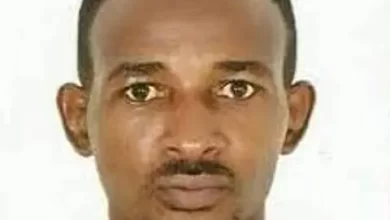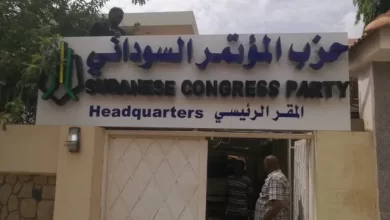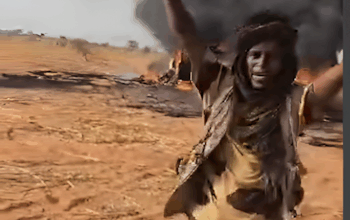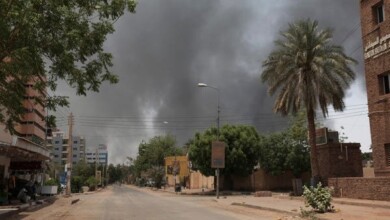Hamdok: The continuation of war opens the door
to more crimes and violations
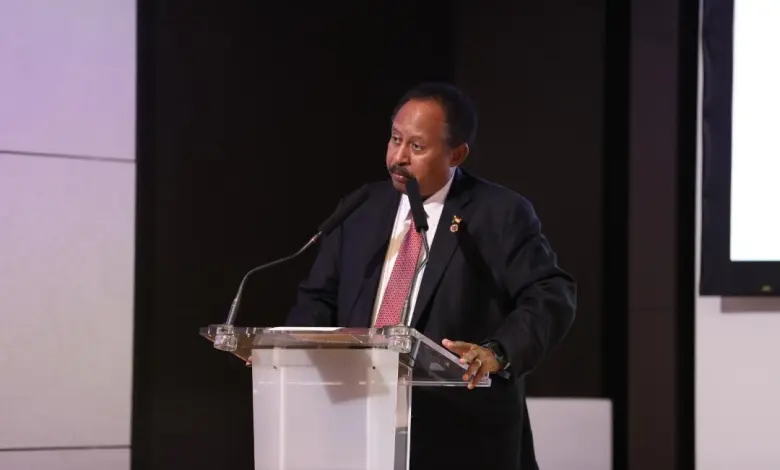
Former Sudanese Prime Minister and head of the Coordination-body of the Democratic and Civil Forces “TAGADOM”, Abdallah Hamdok, stated that the war tearing Sudan apart was not momentarily ignited, but the reasons for its outbreak were rather accumulating on a daily basis.
On the 15th of April, marking a year of the ongoing war in Sudan, Hamdok shared in a speech addressing the Sudanese people, that the civil, military, societal and political leaders must realize that the continuation of the war will not restore rights, stop crimes, or achieve justice and retribution. Rather, it opens the door for more crimes and violations, destroying the remains of the country’s resources and wealth, in addition to threatening the lives of millions.
Hamdok added, “Tens of thousands of civilians and military personnel from the Sudanese people have lost their lives, millions have been displaced between cities of displacement and countries of refuge. Hunger, diseases and poverty are killing millions, the State is being torn apart and the lines of communication between them are cut off. The infrastructure that was once established with the people’s efforts and funds is collapsing, and people are losing their money and properties, to be plundered and stolen, and our country is facing the danger of divisions along the racial and ethnic lines, which in turn threatens utter collapse.”
He continued: “We have been warning of an approaching war, and talking about the disasters and calamities it will bring upon our country, calling for the adherence to discussions and peaceful means, inspired by this spirit of our glorious revolution, which adhered to its peacefulness despite all the violence, constrain and conspiracy it was faced with, and even though it’s martyrs had chants as their sole peaceful weapon.”
Conspiracy against the revolution
The head of “TAGADOM” confirmed that the conspiracy against the revolution had begun upon its first day, by declaring commitment to its goals, then abandoning them and trying to suppress them, as what took place in the sit-in dispersal massacre. Followed by the signing and later vetoing charters and agreements, working alongside the enemies of the revolution, and this was culminated in the October 25th, 2021 coup. It announced an end to the democratic transition process and the coup against the revolution and its aims. However, the youth of the revolution’s heroic resistance, which never stopped, forced the coup plotters to retreat and try seeking a way out, but as before, they blocked all outlets offered by the people with great sacrifices and redemption, and instead led our country to this holocaust.
Hamdok noted that the civil forces, despite their diversity and different programs, were always keen on restoring the path of democratic transition, noting the mistakes committed, especially in regards to the unity of the revolutionary forces, which should have been above all else, because it is the only guarantee for preserving the revolution and its goals.
He stated that the civil forces, including parties, civil society, professional forces, and resistance committees, were preoccupied with negligible disputes, and created gaps in the wall of the revolution through which the enemies of the revolution and our country penetrated.
Putting an end to the war
Hamdok stressed that the efforts made by the civil forces to put an end to the war have not stopped since its outbreak, as contact was established and continued with both parties to the conflict, as well as with regional and international powers and organizations.
He stated: “We continued with our attempts to unite the forces that rejected the war under a unified front, without exception, and our slogan and motivation was for the suffering of our people to stop, and for us to make every effort and offer every possible price in exchange,” noting that “it took some time until we were able to take an important step forward in the expanded meeting that took place
in October 2023 in Addis Ababa, which resulted in the formation of the Coordination-body of the Democratic and Civil Forces “TAGADOM”.
He went on to explain that the work was continued after that, “and we extended invitations to the political forces, armed struggle forces, civil and professional forces, as well as resistance committees to join these efforts and contribute to building the front.” We were met with a favorable response, so we extended our hands to those who didn’t wish to join the front, but are working to stop the war, in order to coordinate efforts in any acceptable format to them.”
Hamdok stated that contact was established and continued with both parties to the conflict, as well as with regional and international powers and organizations, while attempts were made simultaneously to unite all forces rejecting the war in a unified front, without exception.
The head of the the Coordination-body of the Democratic and Civil Forces “TAGADOM” stressed that all contacts and meetings, and what will take place in the future, “was and will remain an open eye to the lives, peace and security of millions of sons and daughters of our country, for we are doing this without bias towards any party to the war, but at the same time we are not indifferent or mediators.”
The national programme
The head of “TAGADOM” stated: “We are biased towards the families of the martyrs, both military and civilian, from all parties. We are biased towards those whose money and property were robbed and they were subjected to serious crimes and violations. We are biased toward the millions who were displaced from their areas and headed to sites of displacement and asylum. We are biased toward the hungry and poor whom the continuation of this war exposes to death in front of the eyes of the world, we are biased towards the National Democratic Program for a homeland that accommodates everyone and for a citizenship without discrimination.”
He reaffirmed the coordination’s position in urging to put an end to the war, to address the humanitarian conditions, to stop the targeting of civilians, to restore the path of democratic transformation, and open an expanded dialogue that leads to the formation of transition structures. These positions are in the interest of the nation and the citizen. He stressed that this will not be achieved except by returning to the negotiation platform and choosing the path of peaceful negotiation as a way to end the war and address its effects.
Hamdok concluded his statement by sharing: “We are doing this out of commitment to the homeland’s right on us. We did not discuss the distribution of roles or positions, and we will not do so. We know that when the time comes, there are thousands of people of our country who are qualified to bear the responsibility and the burden of rebuilding what the war has destroyed, and they will find help in us from where we stand.”

